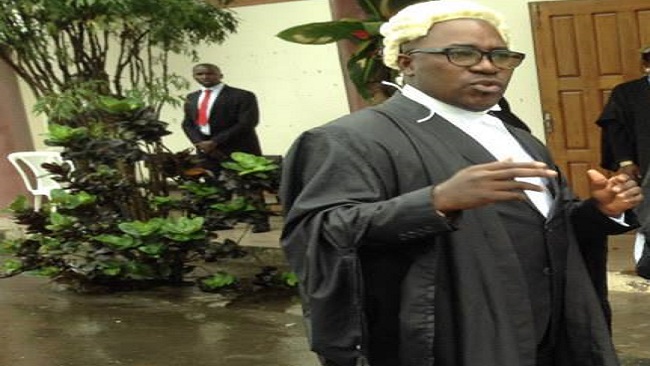The Anglophone problem is a ticking time bomb that requires presidential leadership and political will to defuse
Regardless of what anyone may think about the Anglophone problem, what even President Biya cannot dispute is that Anglophone grievances are genuine. Anglophones have lost faith in the country and the status quo is not sustainable. After 55 years of marginalization and discrimination, there is no better time than now to address the structural and institutional challenges facing the nation. And Anglophones have made no secret of their intentions to secede if the government refuses dialogue and the return to a federal system of government. But the odor of petrifying arrogance from government officials is matched by their patronizing bellicosity evidenced by their outright rejection of federalism. This is sheer nonsense. Truth be told; Anglophones are not begging for federalism. If the government refuses dialogue, then Anglophones are left no choice than to restore their independence.
It defies common sense that the government is creating committees to negotiate with Anglophones, while government apologists take to the airwaves to deny the existence of a problem the government claims it wants to solve. This most certainly, is not the way to solve the Anglophone problem. It must be stated unequivocally that threats of intimidation and brimstone on Anglophones can only harm the very cause of national unity which the government is seeking to advance. In real terms, the committee meetings underscore the yawning disconnect between government’s ostrich-like grandstanding and bad faith towards Anglophones. The pig-headed effort to address grievances specific to lawyers and teachers outside the gamut of the Anglophone problem indicates the Francophone regime is stuck in the past. You cannot use yesterday’s solutions to solve today’s problems. It will not work.
Biya can no longer pretend not to understand that Anglophones want a dialogue to discuss their future and the government should be under no illusion about the explosive potentialities and danger to national unity, posed by the Anglophone problem. It appears the President seems more preoccupied with the ceremonial aspects of his job and has lost sight of the reasons Cameroonians elected him. Biya must understand that as an employee of the Cameroonian people, he has a constitutional obligation to listen to grievances from every section of the country and to address them. Military force will solve the Anglophone problem and history offers valuable lessons to that effect.
No word can be too strong to condemn the overwhelming force against peaceful Anglophone protests and the extra-judicial killing of Anglophones. The ongoing militarization of Anglophone towns smacks of a deliberate attempt to escalate the situation. In due course, Anglophones will be compelled to respond to the provocation by meeting force with force in legitimate self-defense. Let no one be fooled that Anglophones will stand idly by and watch soldiers shoot and kill them like game. When push eventually comes to shove, the jackboots on the streets of Anglophone towns will become an army of occupation and legitimate reprisal targets. The soldiers might have all the weapons of mass destruction, but Anglophones own their towns; master the terrain and outnumber the invaders and with history on their side, they will overcome. So Quo Vadis?
With negotiation now at an impasse, and the strikes poised to continue, there is a sense of foreboding in the horizon. Obviously, the government will continue to preach dialogue, while deploying brigandage and executive lawlessness to suffocate the protests. Already, Anglophones are endangered species against whom the might and resources of the state are being deployed. Cameroonians of conscience, including Francophones are apprehensive of the Gestapo tactics and invidious persecution of Anglophones; fearing the country is gradually receding to the transmutation trajectory of a civil war. This should worry the president.
The government’s refusal to dialogue with Anglophones is nothing but a manifestation of the culture of arrogance and impunity that has been the modus operandi of successive Francophone governments from Ahidjo to Paul Biya. Regrettably, Biya’s failure to show leadership by taking ownership of the Anglophone problem is a pointer to the abysmal level of the political leadership in the country and its immaturity. The Anglophone case is predicated on the force of the argument and the government’s recourse to the argument of force is a meaningless show of crude power. It is bewildering because it is happening under a supposedly democratic government. It is also ironic because democracy has inbuilt institutional mechanisms, both formal and informal, for addressing differences and conflicts. Interestingly, the accommodation of dissent is a fundamental element in any democracy.
Cameroon’s greatest strength is her diversity. It should never be denied. Without doubt, there are things Cameroonians in their linguistic and ethnic differentiation have as common values that should be the basis for their unity and strength. To paraphrase former US President Bill Clinton, in a different context, there is nothing wrong with Cameroon that cannot be corrected by what is right with Cameroon. All Biya needs to do is get Cameroonians together; give them the opportunity to chart a new way forward, and rediscover those binding ethos of the nation and why it profits all of us to be Cameroonians. The Anglophone problem is a ticking time bomb that requires presidential leadership and political will to defuse. The President can continue to ignore the problem at the nation’s peril.
*Ekinneh Agbaw-Ebai is a Public Intellectual and graduate of Harvard University John F. Kennedy School of Government, where he was Managing Editor of the Harvard Journal of African-American Public Policy. A former Research Analyst for Freedom House, he is a Consultant and lives in Boston, USA. Talk back at ekinneh@yahoo.com





